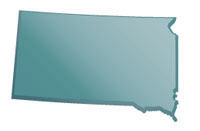
Substance Abuse Counseling Certification in South Dakota
South Dakota has three levels of certification for its Substance Abuse Counselors. The levels are known as: the Certified Chemical Dependency Counselor I (CCDC-I), the Certified Chemical Dependency Counselor II (CCDC-II) and the Certified Chemical Dependency Counselor III (CCDC-III). Each level has its own benchmarks for education, experience and testing that must be met before the title can be gained.
CCDC-I Requirements
- Pass a criminal background check.
- You will need at least an Associate’s degree in Chemical Dependency Counseling from an accredited college or university.
- Your education must include 15 semester hours composed of the following classes: Introduction to the Study ofAlcohol Use and Abuse (3 hours), Introduction to the Study of Drug Use and Abuse (3 hours), Foundations ofIndividual Counseling (3 hours), Alcohol and Drug Group Counseling (3 hours), Professional Ethics for ChemicalDependency Counselors (3 hours).
- You must complete 300 hours of Addictions Counseling training/education in the 12 Core Functions with ten hours in each area: Screening; Intake; Orientation; Assessment; Treatment Planning; Counseling; Case Management; Crisis Intervention; Client Education; Referral; Reports and Record Keeping; Consultation.
- You must have three professional recommendations.
- You are required to have accumulated one full year of alcohol and drug abuse counseling. This is equivalent to 2000 hours. This work experience must be within the 12 Core Functions.
- Your supervisor must be a CCDC II or CCDC III.
- You can find the application form for the CCDC here.
CCDC-II Requirements
- Pass a criminal background check.
- You must complete all the CCDC I requirements and have a CCDC I certification that is current.
- You will need at least a Bachelor’s degree in Chemical Dependency Counseling from an accredited college or university.
- Your education must include 27 semester hours composed of the following classes: Introduction to the Study ofAlcohol Use and Abuse (3 hours), Introduction to the Study of Drug Use and Abuse (3 hours), Foundations of Individual Counseling (3 hours), Alcohol and Drug Group Counseling (3 hours), Professional Ethics for Chemical Dependency Counselors (3 hours), Alcohol and Drug Treatment Continuum (3 hours), Counseling Families withAlcohol or Other Drug Issues (3 hours), Cultural Competency or Special Populations (3 hours), Chemical Dependency Specific Elective (3 hours)
- You must complete 300 hours of Addictions Counseling training/education in the 12 Core Functions with ten hours in each area: Screening; Intake; Orientation; Assessment; Treatment Planning; Counseling; Case Management; Crisis Intervention; Client Education; Referral; Reports and Record Keeping; Consultation.
- You are required to have accumulated one full year of alcohol and drug abuse counseling. This is equivalent to 2000 hours. This work experience must be within the 12 Core Functions.
- You must have three professional recommendations.
- Your supervisor must be a CCDC II or CCDC III.
CCDC-III Requirements
- Pass a criminal background check.
- You must complete all the CCDC II requirements and have a CCDC II certification that is current.
- You will need at least a Master’s degree in Chemical Dependency Counseling from an accredited college or university.
- Your education must include 27 semester hours composed of the following classes: Introduction to the Study of Alcohol Use and Abuse (3 hours), Introduction to the Study of Drug Use and Abuse (3 hours), Foundations of Individual Counseling (3 hours), Alcohol and Drug Group Counseling (3 hours), Professional Ethics for Chemical Dependency Counselors (3 hours), Alcohol and Drug Treatment Continuum (3 hours), Counseling Families with Alcohol or Other Drug Issues (3 hours), Cultural Competency or Special Populations (3 hours), Chemical Dependency Specific Elective (3 hours)
- You must complete 300 hours of Addictions Counseling training/education in the 12 Core Functions with ten hours in each area: Screening; Intake; Orientation; Assessment; Treatment Planning; Counseling; Case Management; Crisis Intervention; Client Education; Referral; Reports and Record Keeping; Consultation.
- You must have three professional recommendations.
- You are required to have accumulated one full year of alcohol and drug abuse counseling. This is equivalent to 2000 hours. This work experience must be within the 12 Core Functions.
- Your supervisor must be a CCDC II or CCDC III.
- You can find the application to upgrade to CCDC III here.



